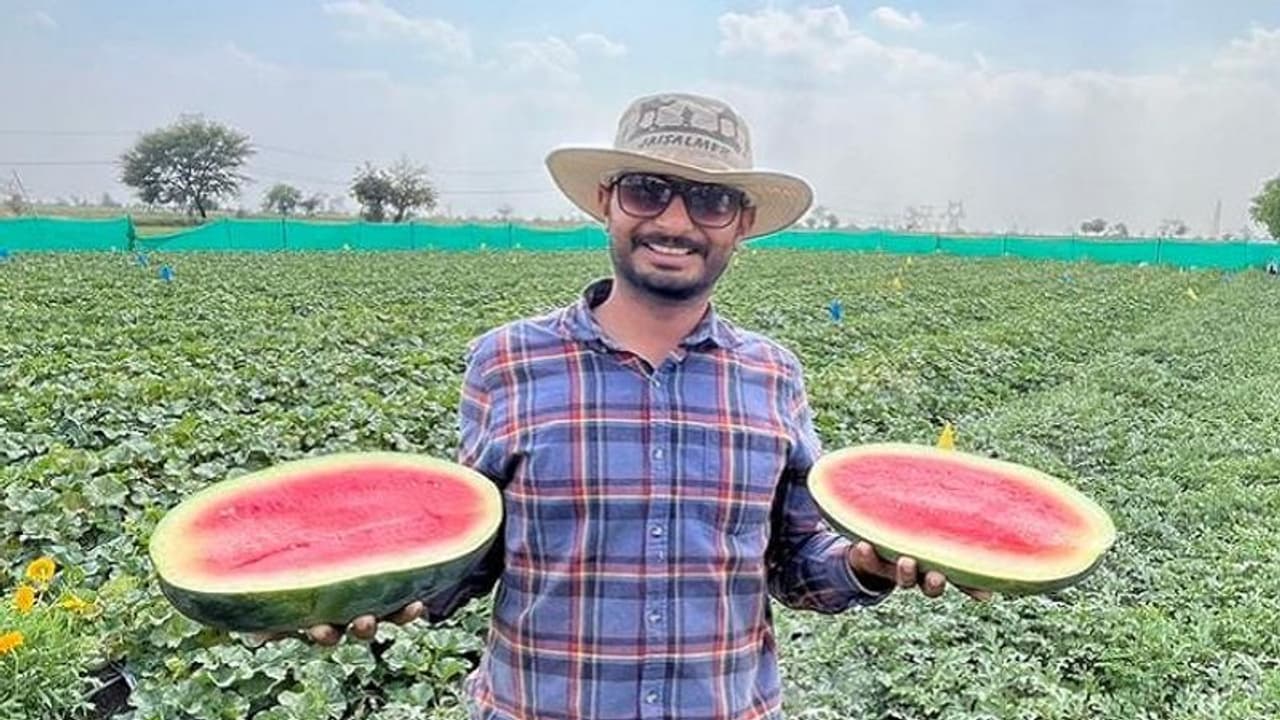Tathagat Barodh form Madhya Pradesh took up farming as a career after completing his studies from NIT and IIT. He did not do a private job and has been involved in organic farming practices for the last 5 years. Crops like moringa, amla, turmeric, gram, lemon grass are grown on his fields. The other farmers of his area look up to him for inspiration and consider him a role model.
Indore: Tathagat Barodh attended the top universities of India namely, Indian Institute of Technology and National Institute of Technology, and changed his career paths to become a farmer. He has been involved with organic farming for the last five years. His successful farming endeavour has become an inspiration for other farmers.
According to Tathagat Barodh, there is no market for organic produce in India. There is less demand due to which most farmers return to using traditional farming methods. His aim is to promote sustainable farming practices for a better future.
Tathagat Barodh’s story
Tathagat is a resident of Chhapri village of Kalapipal in Shahjahanpur district of Madhya Pradesh. He did his graduation from NIT Bhopal, and his post-graduation from IIT Mumbai. His family members were already involved in farming. Tathagat, too, had his inclination more towards making a career in farming.
He learned about organic farming practices during his time at IIT. He learned about the importance of making the agriculture sector independent for the development of villages. During his last year of post-graduation, he started a project where he educated children from cities about the tribal civilization and lifestyle and more. In the year 2017, he returned back to his village after completing his education.
Seeking and becoming an inspiration
Tathagat took on the responsibility of making the farmers educated about organic farming practices. They could not be assured by just disseminating information, so Tathagat devised a plan where he himself actively got involved in the fields. He experimented with organic farming on a small piece of land at first. At present, he cultivates 17 types of crops organically in about 18 acres of land. He grows moringa, amla, turmeric, gram, lemon grass and more. He is at a break-even point, meaning the profits he makes are spent on the fields.
Advice for organic farming
Tathagat shares that farming is a slow and gradual process and requires much patience with the crops. One cannot become an organic farmer from day 1. One can try growing certain crops on a small piece of land, and if positive results are observed, the same crops can be cultivated on a larger scale.
Presently, Tathagat does the work of processing and packaging of the products himself, which helps him increase the profits.
Making Gobar gas
Tathagat also owns a cow shed. He supplies milk and other products directly to the customers without any involvement of middlemen. Gobar gas is also produced in his farms. Tathagat makes use of cow dung and urine and uses them in the fields. Chemical fertilizers and pesticides are not used.
Tathagat believes that farming is a profitable business; with much less investment, massive profits can be reaped if the work is done the right way. The other farmers of his area look up to him for inspiration and consider him a role model.
